For decades, Alcoholics Anonymous (AA) has been the dominant model for treating Alcohol Use Disorder (AUD). While it has helped some, research shows that it doesn’t work for everyone — and in fact, many people do better with a compassion-led, science-based approach to changing their relationship with alcohol.
This modern approach is grounded in evidence, not shame. It’s designed to help people understand the why behind their drinking, rewire the habit loops in their brain, and build sustainable change — without relying on willpower or labels.
Here’s why it works — and why it may be a better fit than AA for a large number of people.
1. AA’s Success Rates Are Low — Compared to Other Methods
While some benefit from AA, especially in combination with other treatment, independent studies have found that AA’s success rate is often only around 5% to 10% (Vaillant, 1995; Brandsma et al., 1980) when people are not highly motivated or don’t resonate with the model. By contrast, approaches such as Cognitive Behavioural Therapy (CBT) and Motivational Interviewing (MI) show much higher efficacy in peer-reviewed studies (Miller & Wilbourne, 2002).
2. Compassion Is Scientifically Linked to Better Behavioural Outcomes
Research in behavioural psychology and neuroscience shows that shame-based approaches often backfire. When people feel judged or broken, they’re more likely to disengage, isolate, or relapse.
Compassion-based approaches flip that script. They are built on self-awareness, self-kindness, and emotional safety. According to research from Dr. Kristin Neff and others in the field of self-compassion, people who treat themselves with kindness are more likely to make lasting changes and recover from setbacks — without falling into cycles of guilt or self-sabotage.
3. Modern Approaches Are Aligned With Neuroscience
AA relies heavily on spiritual surrender and moral inventory, but it does not address the neurobiological mechanisms of addiction — like how alcohol hijacks the brain’s reward system, strengthens neural habit loops, and disrupts dopamine regulation.
A science-based approach understands that alcohol use is not a moral failing, but a learned behaviour that can be unlearned. Tools like habit tracking, mindset reframing, emotional regulation, and neuroplasticity-informed practices help people retrain their brains and reduce cravings in a sustainable way.
4. No Labels. No Rock Bottom. Just Honest Reflection.
AA requires members to identify as “alcoholic” and admit powerlessness over alcohol. For many people — especially those in the grey area of drinking — this can feel like an overreach.
A science-and-compassion model meets people where they are. It asks questions like:
- “How do you feel about your drinking?”
- “What needs is alcohol meeting for you?”
- “Is it aligned with the life you want to live?”
This encourages curiosity instead of fear, and gives people agency and flexibility to change without having to hit rock bottom.
5. Support That Builds Confidence — Not Dependence
In AA, long-term sobriety often depends on ongoing meeting attendance and peer accountability. That can be helpful — but it can also create dependency on external structures rather than building internal resilience and self-trust.
Evidence-based coaching and therapeutic approaches focus on:
Skill-building (e.g. managing urges, regulating emotions)
Rebuilding self-trust
Clarifying values and long-term goals
This leads to a stronger, more self-directed recovery, where the individual feels empowered — not dependent.
6. It’s Flexible, Not All-or-Nothing
AA frames recovery as abstinence-only. One drink = relapse. For many, this black-and-white model leads to shame spirals and “I’ve already blown it, might as well keep drinking” thinking.
Science-backed models acknowledge that behaviour change is a process — not a straight line. A lapse is a data point, not a disaster. This more forgiving, realistic approach helps people learn from setbacks and continue moving forward without judgement.
Final Thoughts
AA has helped many people, and for some it remains a valuable source of support. But it’s not the only way — and for many, it’s not the most effective way.
A compassionate, science-based approach to alcohol recovery:
- Respects individual choice
- Supports long-term behavioural change
- Builds emotional resilience
- And empowers people to take ownership of their lives — without shame, labels, or rigid dogma
- If traditional models haven’t worked for you — or if they simply don’t feel like a fit — know this: You’re not broken. You just need a different approach.
And that approach can be rooted in something far more powerful than fear or willpower: understanding, science, and compassion.



